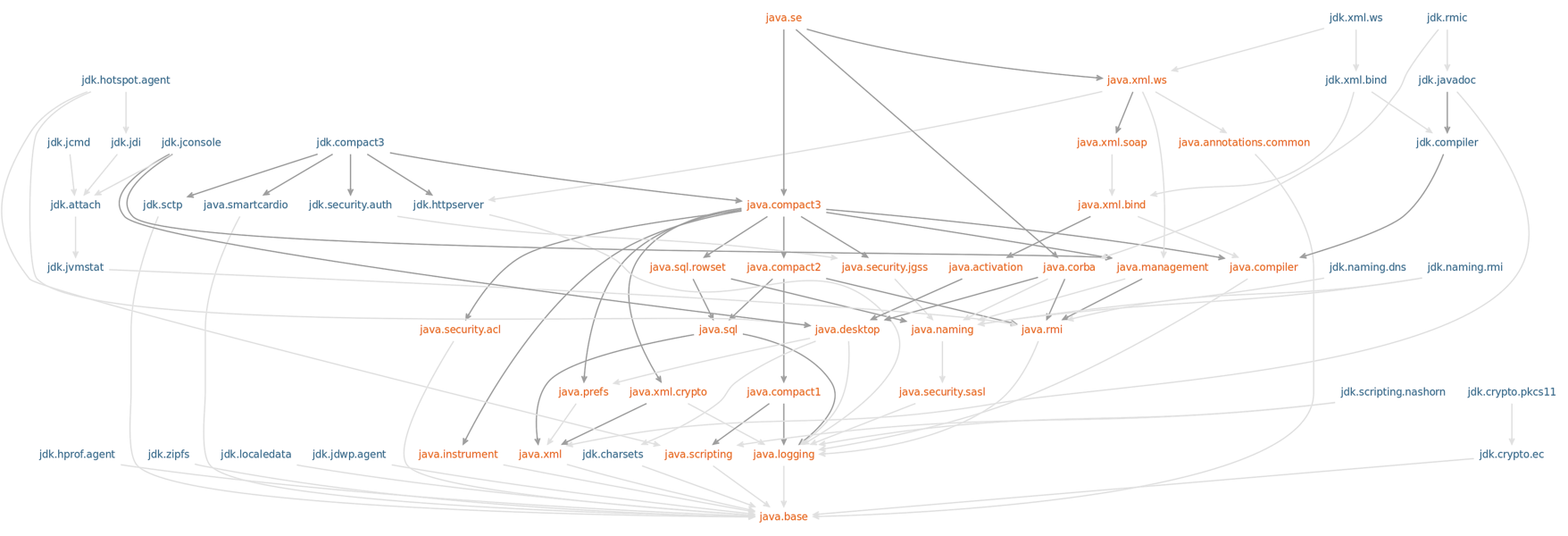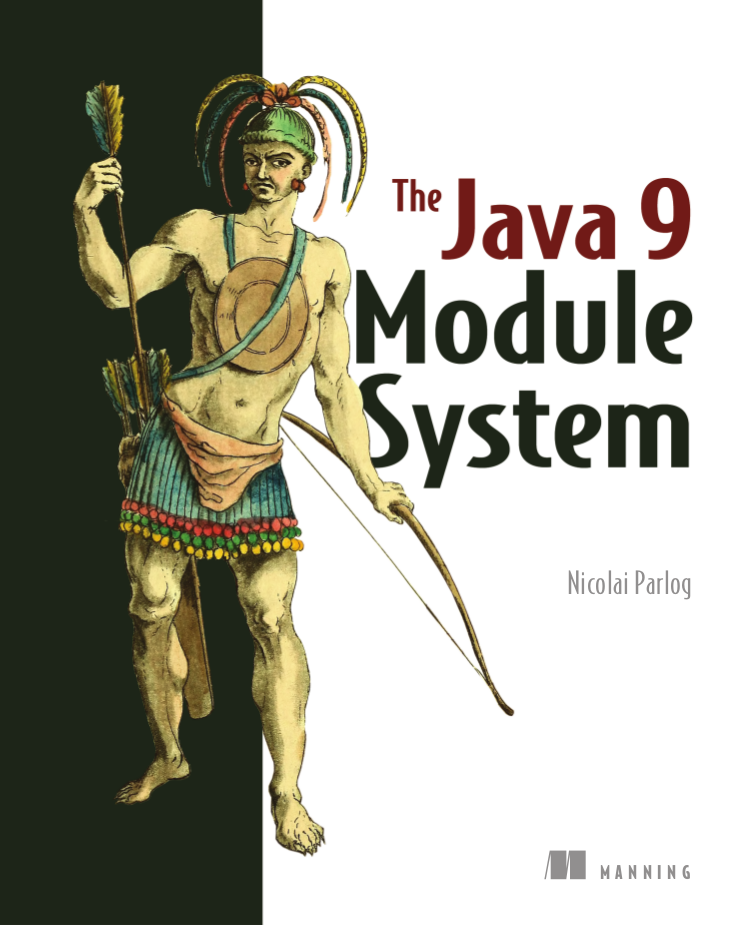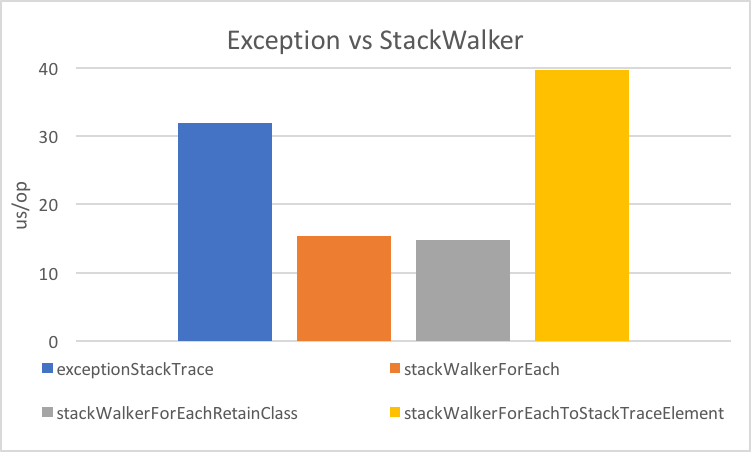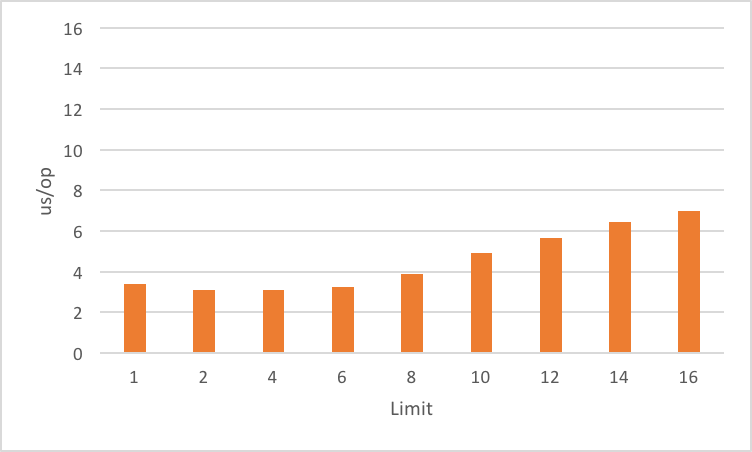module java.sql {
requires transitive java.logging
requires transitive java.xml
uses java.sql.Driver
exports java.sql
exports javax.sql
exports javax.transaction.xa
}Java 9 Is Coming!
21st Of September 2017
Public Service Announcement
this is a showcase, not a tutorial
slides at slides.codefx.org
Lots to talk about!
| Module System |
| Language Changes |
| New and Updated APIs |
| New JVM Features |
| Performance Improvements |
Module System
Delaying Java since 2008!
JAR Hell is bad, mkay?
JARs have:
no explicit dependencies
no well-defined API
no concept of versions
Some consequences:
NoClassDefFoundErrorno encapsulation across JARs
version conflicts
Modules
Modules are like JARs but have:
explicit dependencies
a well-defined API
no concept of versions
Some consequences:
reliable configuration
strong encapsulation
a couple of nice features
still version conflicts 😭
Platform Modules

Module Descriptor
A file module-info.java:
Reliable Configuration
module java.sql {
requires transitive java.logging
requires transitive java.xml
}Module system enforces:
all required modules are present
no ambiguity
no static dependency cycles
no split packages
Strong Encapsulation
module java.sql {
exports java.sql
exports javax.sql
exports javax.transaction.xa
}Say you want to access java.sql.ResultSet.
Module system only grants access if:
ResultSetis publicjava.sqlis exported by java.sqlyour module reads java.sql
Services
The module system as a service registry:
module java.sql {
uses java.sql.Driver
}
module mysql.driver {
provides java.sql.Driver
with com.mysql.MySQLDriver;
}
Loading Services
Code in java.sql can now do this:
List<Driver> drivers = new ArrayList<>();
ServiceLoader
.load(Driver.class)
.forEach(drivers::add);Other Features
finer grained dependencies and exports
open packages and modules (for reflection)
unnamed and automatic modules (for migration)
layers (for containers)
jlinkto create runtime images
More About JPMS

I’m writing a book!
EA available ⇝ tiny.cc/j9ms
creating, building,
running modulesmigration to Java 9
migration to JPMS
services and
advanced featuresreflection and layers
custom runtime images
New Language Features
| Private Interface Methods |
| Try-With-Resources |
| Diamond Operator |
| SafeVarargs |
| Deprecation Warnings |
New Language Features
| Private Interface Methods |
| Try-With-Resources |
| Diamond Operator |
| SafeVarargs |
| Deprecation Warnings |
Enabling reuse between default methods.
No Reuse
public interface InJava8 {
default boolean evenSum(int... numbers) {
return sum(numbers) % 2 == 0;
}
default boolean oddSum(int... numbers) {
return sum(numbers) % 2 == 1;
}
default int sum(int[] numbers) {
return IntStream.of(numbers).sum();
}
}Private Interface Methods
public interface InJava9 {
private int sum(int[] numbers) {
return IntStream.of(numbers).sum();
}
}Just like private methods in abstract classes:
must be implemented
can not be overriden
can only be called in same source file
New Language Features
| Private Interface Methods |
| Try-With-Resources |
| Diamond Operator |
| SafeVarargs |
| Deprecation Warnings |
Making try-with-resources blocks cleaner.
Useless Variable
void doSomethingWith(Connection connection)
throws Exception {
try(Connection c = connection) {
c.doSomething();
}
}Why is c necessary?
Why is c necessary?
target of
close()must be obvious
⇝ resource should not be reassignedeasiest if resource is final
easiest if resource must be assigned
and can be made implicitly final
try(Connection c = connection)Effectively Final Resource
But since Java 8 we have effectively final!
This works in Java 9:
void doSomethingWith(Connection connection)
throws Exception {
try(connection) {
connection.doSomething();
}
}compiler knows that
connectionis not reassigneddevelopers know what effectively final means
New Language Features
| Private Interface Methods |
| Try-With-Resources |
| Diamond Operator |
| SafeVarargs |
| Deprecation Warnings |
A little more type inference.
Diamond Operator
Maybe the best example:
List<String> strings = new ArrayList<>();used at a constructor call
tells Java to infer the parametric type
Anonymous Classes
Diamond did not work with anon. classes:
<T> Box<T> createBox(T content) {
// we have to put the `T` here :(
return new Box<T>(content) { };
}Reason are non-denotable types:
might be inferred by compiler for anon. classes
can not be expressed by JVM
Infer Denotable Types
Java 9 infers denotable types:
<T> Box<T> createBox(T content) {
return new Box<>(content) { };
}Gives compile error if type is non-denotable:
Box<?> createCrazyBox(Object content) {
List<?> innerList = Arrays.asList(content);
// compile error
return new Box<>(innerList) { };
}New Language Features
| Private Interface Methods |
| Try-With-Resources |
| Diamond Operator |
| SafeVarargs |
| Deprecation Warnings |
One less warning you couldn’t do anything about.
Heap Pollution
Innocent looking code…
private <T> Optional<T> firstNonNull(T... args) {
return stream(args)
.filter(Objects::nonNull)
.findFirst();
}Compiler warns (on call site, too):
Possible heap pollution from parameterized vararg typeHeap Pollution?
For generic varargs argument T… args,
you must not depend on it being a T[]!
private <T> T[] replaceTwoNulls(
T value, T first, T second) {
return replaceAllNulls(value, first, second);
}
private <T> T[] replaceAllNulls(T value, T... args) {
// loop over `args`, replacing null with `value`
return args;
}Compiler Warning
Compiler is aware of the problem and warns you.
If you think, everything’s under control:
@SafeVarargs
private <T> Optional<T> firstNonNull(T... args) {
return // [...]
}Or not… In Java 8 this is a compile error!
Invalid SafeVarargs annotation. Instance
method <T>firstNonNull(T...) is not final.But Why?
The @SafeVarargs annotation:
tells the caller that all is fine
only makes sense on methods
that can not be overriden
Which methods can’t be overriden?
⇝ final methods
What about private methods?
⇝ Damn! 😭
@SafeVarargs on Private Methods
Looong story, here’s the point:
In Java 9 @SafeVarargs
can be applied to private methods.
New Language Features
| Private Interface Methods |
| Try-With-Resources |
| Diamond Operator |
| SafeVarargs |
| Deprecation Warnings |
Another warning you couldn’t do anything about.
Deprecation Warnings
Should this code emit a warning?
// LineNumberInputStream is deprecated
import java.io.LineNumberInputStream;
public class DeprecatedImports {
LineNumberInputStream stream;
}// LineNumberInputStream is deprecated
import java.io.LineNumberInputStream;
@Deprecated
public class DeprecatedImports {
LineNumberInputStream stream;
}Not On Imports
Java 9 no longer emits warnings
for importing deprecated members.
Warning free:
import java.io.LineNumberInputStream;
@Deprecated
public class DeprecatedImports {
LineNumberInputStream stream;
}New or Updated APIs
| Stream Improvements |
| Optional Improvements |
| Collection Factories |
| Reactive Streams |
| Stack-Walking |
| OS Processes |
Some APIs are new,
many existing ones were improved.
Stream Improvements
| Stream Improvements |
| Optional Improvements |
| Collection Factories |
| Reactive Streams |
| Stack-Walking |
| OS Processes |
Small improvements to Java 8 streams.
Stream::ofNullable
Creates a stream of zero or one elements:
long zero = Stream.ofNullable(null).count();
long one = Stream.ofNullable("42").count();Stream::iterate
To use for even less…
iterate(T seed,
Predicate<T> hasNext,
UnaryOperator<T> next);Example:
Stream
.iterate(1, i -> i<=10, i -> 2*i)
.forEach(System.out::println);
// output: 1 2 4 8Stream::iterate
Counter Example:
Enumeration<Integer> en = // ...
Stream.iterate(
en.nextElement(),
el -> en.hasMoreElements(),
el -> en.nextElement())
.forEach(System.out::println);first
nextElement()then
hasMoreElements()⇝ fail
Stream::takeWhile
Stream as long as a condition is true:
Stream<T> takeWhile(Predicate<T> predicate);Example:
Stream.of("a", "b", "c", "", "e")
.takeWhile(s -> !s.isEmpty());
.forEach(System.out::print);
// output: abcStream::dropWhile
Start streaming as soon as a condition is true:
Stream<T> dropWhile(Predicate<T> predicate);Example:
Stream.of("a", "b", "c", "de", "f")
.dropWhile(s -> s.length() <= 1);
.forEach(System.out::print);
// output: defOptional Improvements
| Stream Improvements |
| Optional Improvements |
| Collection Factories |
| Reactive Streams |
| Stack-Walking |
| OS Processes |
Small improvements to Java 8 Optional.
Optional::stream
Turns an Optional into a Stream
of zero or one elements:
Stream<T> stream();Filter-Map …
private Optional<Customer> findCustomer(String id) {
// ...
}
Stream<Customer> findCustomers(List<String> ids) {
return ids.stream()
.map(this::findCustomer)
// now we have a Stream<Optional<Customer>>
.filter(Optional::isPresent)
.map(Optional::get)
}… in one Step
private Optional<Customer> findCustomer(String id) {
// ...
}
Stream<Customer> findCustomers(List<String> ids) {
return ids.stream()
.map(this::findCustomer)
// now we have a Stream<Optional<Customer>>
// we can now filter-map in one step
.flatMap(Optional::stream)
}From Eager to Lazy
List<Order> getOrders(Customer c) is expensive:
List<Order> findOrdersForCustomer(String id) {
return findCustomer(id)
.map(this::getOrders) // eager
.orElse(new ArrayList<>());
}
Stream<Order> findOrdersForCustomer(String id) {
return findCustomer(id)
.stream()
.map(this::getOrders) // lazy
.flatMap(List::stream);
}Optional::or
Choose a non-empty Optional:
Optional<T> or(Supplier<Optional<T>> supplier);Find in Many Places
public interface Search {
Optional<Customer> inMemory(String id);
Optional<Customer> onDisk(String id);
Optional<Customer> remotely(String id);
default Optional<Customer> anywhere(String id) {
return inMemory(id)
.or(() -> onDisk(id))
.or(() -> remotely(id));
}
}ifPresentOrElse
Like ifPresent but do something if empty:
void ifPresentOrElse(
Consumer<T> action,
Runnable emptyAction);Example:
void logLogin(String id) {
findCustomer(id)
.ifPresentOrElse(
this::logCustomerLogin,
() -> logUnknownLogin(id));
}Collection Factories
| Stream Improvements |
| Optional Improvements |
| Collection Factories |
| Reactive Streams |
| Stack-Walking |
| OS Processes |
Creating ad-hoc collections more easily.
Hope is Pain
Wouldn’t this be awesome?
List<String> list = [ "a", "b", "c" ];
Map<String, Integer> map = [ "one" = 1, "two" = 2 ];Not gonna happen!
language change is costly
binds language to collection framework
strongly favors specific collections
Next Best Thing
List<String> list = List.of("a", "b", "c");
Map<String, Integer> mapImmediate = Map.of(
"one", 1,
"two", 2,
"three", 3);
Map<String, Integer> mapEntries = Map.ofEntries(
entry("one", 1),
entry("two", 2),
entry("three", 3));Interesting Details
collections are immutable
(no immutability in type system, though)nullelements/keys/values are forbiddeniteration order is random between JVM starts
(except for lists, of course!)
Reactive Streams
| Stream Improvements |
| Optional Improvements |
| Collection Factories |
| Reactive Streams |
| Stack-Walking |
| OS Processes |
The JDK as common ground
for reactive stream libraries.
Reactive Types
Publisherproduces items to consume
can be subscribed to
Subscribersubscribes to publisher
onNext,onError,onComplete
Subscriptionconnection between publisher and subscriber
request,cancel
Reactive Flow
Subscribing
create
Publisher pubandSubscriber subcall
pub.subscribe(sub)pub creates
Subscription script
and callssub.onSubscription(script)subcan storescript
Reactive Flow
Streaming
subcallsscript.request(10)pubcallssub.onNext(element)(max 10x)
Canceling
pubmay callsub.OnError(err)
orsub.onComplete()submay callscript.cancel()
Reactive APIs?
JDK only provides three interfaces
and one simple implementation.
(Also called Flow API.)
No JDK API uses them.
(No reactive HTTP connections etc.)
Stack-Walking
| Stream Improvements |
| Optional Improvements |
| Collection Factories |
| Reactive Streams |
| Stack-Walking |
| OS Processes |
Examining the stack faster and easier.
StackWalker::forEach
void forEach (Consumer<StackFrame>);public static void main(String[] args) { one(); }
static void one() { two(); }
static void two() {
StackWalker.getInstance()
.forEach(System.out::println);
}
// output
StackWalkingExample.two(StackWalking.java:14)
StackWalkingExample.one(StackWalking.java:11)
StackWalkingExample.main(StackWalking.java:10)StackWalker::walk
T walk (Function<Stream<StackFrame>, T>);static void three() {
String line = StackWalker.getInstance().walk(
frames -> frames
.filter(f -> f.getMethodName().contains("one"))
.findFirst()
.map(f -> "Line " + f.getLineNumber())
.orElse("Unknown line");
);
System.out.println(line);
}
// output
Line 11Options
getInstance takes options as arguments:
SHOW_REFLECT_FRAMESfor reflection framesSHOW_HIDDEN_FRAMESe.g. for lambda framesRETAIN_CLASS_REFERENCEforClass<?>
Frames and Traces
forEach and walk operate on StackFrame:
class and method name
class as
Class<?>bytecode index and isNative
Can upgrade to StackTraceElement (expensive):
file name and line number
Performance I

Performance II

Performance III
creating
StackTraceElementis expensive
(for file name and line number)lazy evaluation pays off for partial traversal
(Benchmarks performed by Arnaud Roger)
OS Processes
| Stream Improvements |
| Optional Improvements |
| Collection Factories |
| Reactive Streams |
| Stack-Walking |
| OS Processes |
Improving interaction with OS processes.
Simple Example
ls /home/nipa/tmp | grep pdfPath dir = Paths.get("/home/nipa/tmp");
ProcessBuilder ls = new ProcessBuilder()
.command("ls")
.directory(dir.toFile());
ProcessBuilder grepPdf = new ProcessBuilder()
.command("grep", "pdf")
.redirectOutput(Redirect.INHERIT);
List<Process> lsThenGrep = ProcessBuilder
.startPipeline(asList(ls, grepPdf));Extended Process
Cool new methods on Process:
boolean supportsNormalTermination();long pid();CompletableFuture<Process> onExit();Stream<ProcessHandle> children();Stream<ProcessHandle> descendants();ProcessHandle toHandle();
New ProcessHandle
New functionality actually comes from ProcessHandle.
Interesting static methods:
Stream<ProcessHandle> allProcesses();Optional<ProcessHandle> of(long pid);ProcessHandle current();
More Information
ProcessHandle can return Info:
command, arguments
start time
CPU time
A Mixed Bag Of API Changes
Many lower-level APIs.
JVM Features
| Multi-Release JARs |
| Redirected Platform Logging |
Multi-Release JARs
| Multi-Release JARs |
| Redirected Platform Logging |
"Do this on Java X, do that on Java Y."
Version Dependence
Main calls Version:
public class Main {
public static void main(String[] args) {
System.out.println(new Version().get());
}
}Version Dependence
Version exists twice:
public class Version {
public String get() { return "Java 8"; }
}
public class Version {
public String get() { return "Java 9"; }
}(Btw, IDEs hate this!)
Creating A Multi‑Release JAR
Now, here’s the magic:
compile
MainandVersion[8]toout/java-8compile
Version[9]toout/java-9use new
jarflag--release:jar --create --file out/mr.jar -C out/java-8 . --release 9 -C out/java-9 .
JAR Content
└ org
└ codefx ... (moar folders)
├ Main.class
└ Version.class
└ META-INF
└ versions
└ 9
└ org
└ codefx ... (moar folders)
└ Version.classRun!
With java -cp out/mr.jar …Main:
prints
"Java 8"on Java 8prints
"Java 9"on Java 9
Great Success!
Redirected Platform Logging
| Multi-Release JARs |
| Redirected Platform Logging |
Use your logging framework of choice
as backend for JDK logging.
Loggers and Finders
New logging infrastructure inside the JDK:
new interface
System.Loggerused by JDK classes
instances created by
System.LoggerFinder
The interesting bit:
LoggerFinder is a service!
Creating a Logger
public class SystemOutLogger implements Logger {
public String getName() { return "SystemOut"; }
public boolean isLoggable(Level level) { return true; }
public void log(
Level level, ResourceBundle bundle,
String format, Object... params) {
System.out.println(/* ...*/);
}
// another, similar `log` method
}Creating a LoggerFinder
public class SystemOutLoggerFinder
extends LoggerFinder {
public Logger getLogger(
String name, Module module) {
return new SystemOutLogger();
}
}Registering the Service
Module descriptor for system.out.logger:
module system.out.logger {
provides java.lang.System.LoggerFinder
with system.out.logger.SystemOutLoggerFinder;
}Module system and JDK take care of the rest!
A Mixed Bag Of New JVM Features
Performance
| Compact Strings |
| Indified String Concatenation |
Compact Strings
| Compact Strings |
| Indified String Concatenation |
Going from UTF-16 to ISO-8859-1.
Strings and memory
20% - 30% of heap are
char[]forStringa
charis UTF-16 code unit ⇝ 2 bytesmost strings only require ISO-8859-1 ⇝ 1 byte
10% - 15% of memory is wasted!
Compact Strings
For Java 9, String was changed:
uses
byte[]instead ofchar[]bytes per character:
1 if all characters are ISO-8859-1
2 otherwise
Only possible because String makes
defensive copies of all arguments.
Performance
Simple benchmark:
(by Aleksey Shipilëv)
String method = generateString(size);
public String work() {
return "Calling method \"" + method + "\"";
}Depending on circumstances:
throughput 1.4x
garbage less 1.85x
Indified String Concatenation
| Compact Strings |
| Indified String Concatenation |
"Improving" + "String" + "Concatenation"
String Concatenation
What happens when you run:
String s = greeting + ", " + place + "!";bytecode uses
StringBuilderJIT may (!) recognize and optimize
by writing content directly to newbyte[]breaks down quickly
(e.g. withlongordouble)
Why Not Create Better Bytecode?
new optimizations create new bytecode
new optimizations require recompile
test matrix JVMs vs bytecodes explodes
Why Not Call String::concat?
There is no such method.
concat(String… args)requirestoStringconcat(Object… args)requires boxing
Nothing fancy can be done
because compiler must use public API.
Invokedynamic
Invokedynamic came in Java 7:
compiler creates a recipe
runtime has to process it
defers decisions from compiler to runtime
(Used for lambda expressions and in Nashorn.)
Indy To The Rescue
With Indy compiler can express
"concat these things"
(without boxing!)
JVM executes by writing content
directly to new byte[].
Performance
Depending on circumstances:
throughput 2.6x
garbage less 3.4x
(Benchmarks by Aleksey Shipilëv)
Performance Of Indified Compact String Concat
Depending on circumstances:
throughput 2.9x
garbage less 6.4x
(Benchmarks by Aleksey Shipilëv)
A Mixed Bag Of Performance Improvements
Full Picture
If you want the full picture:
The Ultimate Guide To Java 9
(tiny.cc/java-9)
If you run into problems:
About Nicolai Parlog
Want More?
⇜ Get my book!
You can hire me:
training (Java 8/9, JUnit 5)
consulting (Java 8/9)

